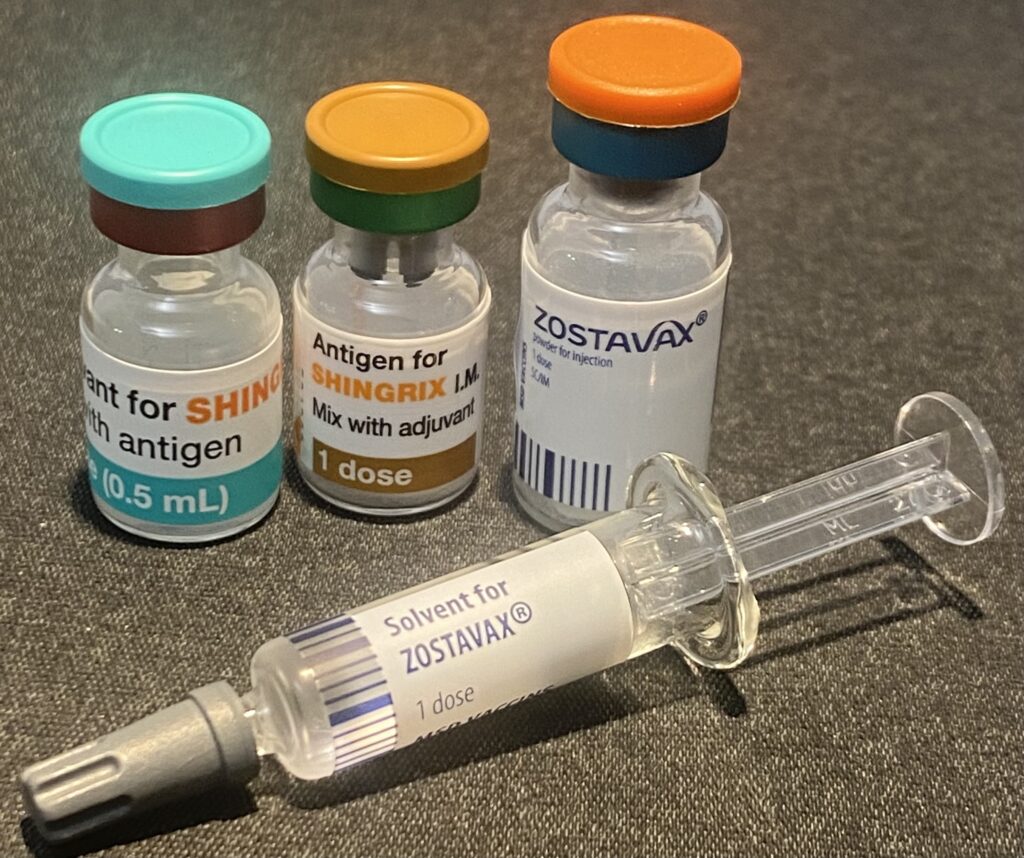Shingles, medically known as Herpes Zoster, is a painful viral infection that occurs when the dormant varicella-zoster virus (the same virus responsible for chickenpox) reactivates in the body. This reactivation often results in a painful, blistering rash, most commonly affecting one side of the body. While shingles can occur at any age, the risk significantly increases as individuals age, particularly in those over 50 years.
Fortunately, shingles can be prevented through vaccination. In this article, we explore the types of shingles vaccines, their effectiveness, and the critical importance of vaccination in preventing this painful condition.

Understanding Shingles and Its Causes
Shingles develops when the varicella-zoster virus reactivates in the body. After a person has had chickenpox, the virus lies dormant in the nerve tissue. Years later, due to factors like age, stress, or a weakened immune system, the virus can reactivate and cause shingles.
Symptoms of Shingles:
- Pain and tingling in a specific area, usually one side of the body
- Rash that forms blisters, often in a band or strip
- Itching and burning sensations
- Fever and headache
- Fatigue and sensitivity to light
Shingles can lead to severe complications, including postherpetic neuralgia (PHN), a condition where pain continues long after the rash heals.
The Importance of Shingles Vaccination
Shingles vaccination is highly effective in reducing the risk of developing shingles and the severity of symptoms in individuals who do develop the disease. Vaccination significantly reduces the likelihood of complications, such as postherpetic neuralgia, and helps prevent the pain associated with shingles, which can persist for months or even years.
Types of Shingles Vaccines
There are two main types of shingles vaccines currently available:
1. Shingrix (Recombinant Zoster Vaccine)
Shingrix is the preferred shingles vaccine in most countries due to its high efficacy. It is recommended for adults aged 50 and older, including those who have had chickenpox or received the previous vaccine, Zostavax.
Benefits of Shingrix:
- Efficacy: Shingrix is more than 90% effective in preventing shingles and postherpetic neuralgia.
- Durability: Protection lasts for at least 5 years, with ongoing studies showing prolonged effectiveness.
- Two-Dose Schedule: Shingrix is administered in two doses, typically 2 to 6 months apart.
How Shingrix Works:
Shingrix is a recombinant vaccine, meaning it does not contain live virus but instead uses a piece of the varicella-zoster virus to stimulate the immune system.
Side Effects:
Common side effects of Shingrix include:
- Pain at the injection site
- Redness or swelling
- Fatigue, headache, or muscle aches
- Fever and chills (often mild)
2. Zostavax (Live Zoster Vaccine)
Zostavax was the first shingles vaccine approved by the FDA and is still used in some cases, though it is less commonly recommended today due to the higher efficacy of Shingrix.
Benefits of Zostavax:
- Zostavax offers protection against shingles and reduces the severity of symptoms in those who do develop the disease.
- It is a single-dose vaccine.
Efficacy:
- Zostavax is about 51% effective at preventing shingles in people over 60 and provides 67% protection against postherpetic neuralgia.
Side Effects:
Common side effects include:
- Pain at the injection site
- Headache and fever
- Redness and swelling at the injection site
Zostavax is no longer recommended for routine vaccination because Shingrix offers more effective and longer-lasting protection.
Eligibility for Shingles Vaccination
While anyone who has had chickenpox is at risk for developing shingles, certain individuals are at higher risk and should strongly consider vaccination.
Recommended Age for Vaccination:
- Adults aged 50 and older: This is the primary group targeted for shingles vaccination, as the risk of developing shingles increases with age.
- Adults with weakened immune systems: This includes people with conditions such as HIV/AIDS, cancer, or those taking immunosuppressive medications.
Vaccination for Those Who Have Had Shingles:
Even individuals who have experienced shingles should get vaccinated, as it can help prevent future outbreaks.
Special Considerations:
- Pregnant women should not receive the shingles vaccine.
- Individuals with severe allergies to any components of the vaccine should consult their healthcare provider.
Shingles Vaccine Effectiveness
Shingrix Vaccine Efficacy:
- Shingrix is more than 90% effective at preventing shingles in adults over 50.
- Effectiveness remains high across different age groups and stays strong for several years.
- The vaccine is particularly effective at preventing postherpetic neuralgia, a common and painful complication of shingles.
Zostavax Vaccine Efficacy:
- Zostavax provides 51% protection against shingles and is significantly less effective than Shingrix.
- It is most beneficial in older adults, though its efficacy diminishes over time.
Side Effects of the Shingles Vaccine
Shingrix Side Effects:
While side effects are generally mild and short-lived, some individuals may experience:
- Pain at the injection site
- Fatigue, muscle aches, and headaches
- Fever and chills
These side effects typically resolve within a few days.
Zostavax Side Effects:
- Pain, redness, or swelling at the injection site
- Headache, fever, or chills
These side effects are usually less severe than those of Shingrix but may persist longer.
Cost of Shingles Vaccination
The cost of shingles vaccination may vary depending on the country, healthcare provider, and insurance coverage.
- Shingrix is generally more expensive due to its higher efficacy and two-dose regimen.
- Zostavax is less costly but is less commonly used due to its lower efficacy.
Many insurance plans cover the cost of the shingles vaccine for individuals over 50, but it is important to confirm with your insurance provider.
Why You Should Get the Shingles Vaccine
Shingles is a painful and debilitating condition that can lead to severe complications, especially as individuals age. Vaccination is the most effective way to prevent shingles and its associated risks, including postherpetic neuralgia. The Shingrix vaccine, with its high efficacy, is the recommended choice for those aged 50 and older. For those considering vaccination, consulting with a healthcare provider to discuss the best option for your health status is essential.

